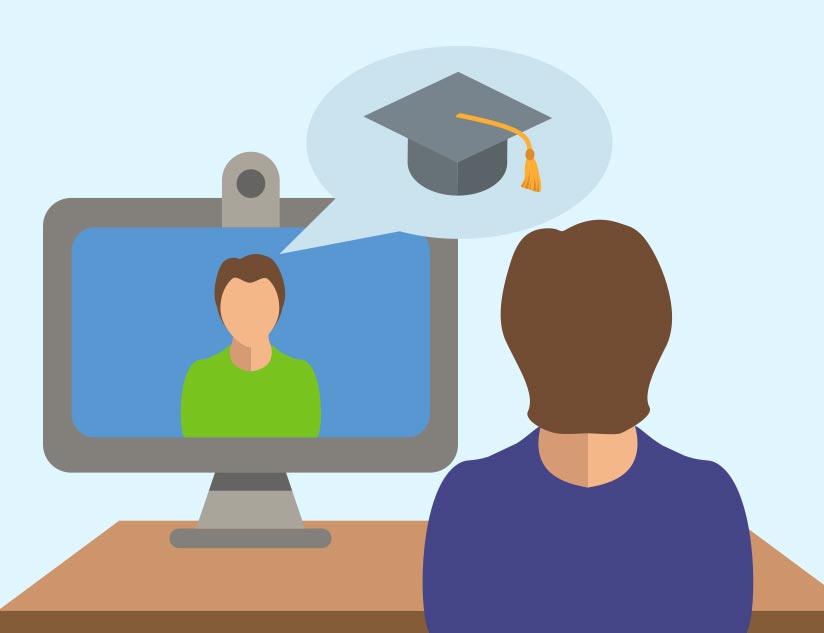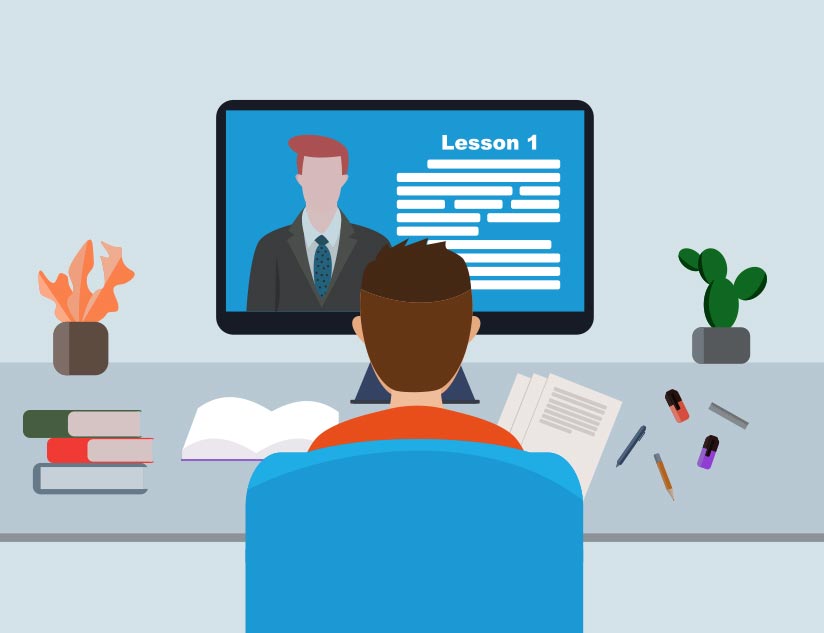The Future Belongs To Smartbooks; Here’s Why
August 29th, 2022
Students and educators unanimously agree that smartbooks are the way forward. These digital assists have improved access to learning material. eReaders are engaging simply because they enhance the overall learning experience. Smartbooks allow students to actively participate in learning, as opposed to listening to a one-sided lecture. These benefits were amplified when the pandemic led to school closures, and virtual classrooms became the new normal.
Even with the schools reopening, it is estimated that the market for global EdTech investments (including eBooks and other digitally printed documents) will increase at a CAGR of 19.9% between 2021 and 2028. It looks like the days when students had to carry a bag full of books to school may soon be gone.
What is a Smartbook?
A smartbook is a digital version of a course textbook. Although the content is similar to a physical textbook, it employs some unique features to enhance the learning experience. Educators or publishers can actively tailor learning to the needs and goals of a student. They can use smartbooks to identify which topics a student knows and doesn’t know. Most importantly, it continuously adapts the material to close knowledge gaps.
The adaptive reading experience, coupled with both online and offline access to learning materials, has built a huge demand for smartbooks in the education market.
Why Smartbooks Have a Promising Future
1. Helps Personalize Learning
Think of a book that prompts students with questions based on what they’re reading. The smartbook can assess individual answers to identify where learners need more practice. Adaptive technology lets smartbooks personalize the whole learning experience. Also, they don’t just comprise of plain text. Smartbooks let educators include interactive features, such as the ability to add annotations, bookmarks, and highlights to content, pen tools, search options, page zoom, read-aloud, captioning, etc.
Another big advantage is that they offer access to educational content online and offline. So, learners don’t have to wait for reliable internet connectivity. They can simply download the material while connected and view them offline, after school.
2. Brings Autonomous Learning to More Students
Most students own a mobile device, and smartbooks can be accessed through these. Research shows that kids with greater learning autonomy are more motivated to learn. This increases the signs of well-being and satisfaction within their learning environment. Smartbooks are gaining popularity due to the freedom it offers students to practice self-directed learning.
With the help of course authoring tools, smartbooks can be developed in multiple languages simultaneously. They can cater to a wide range of readers across the globe.
3. Adapts to Different Learning Styles
There’s no one-size-fits-all learning. And smartbooks recognize this. An educator can break long content into smaller, more consumable chunks. Microlearning modules on smartbooks can be tailored to the student’s individual needs. It enables a teacher to create mini-cycles of questions that contain up to five concepts at a time. This kind of micro-learning can increase information transfer by 17% and boost comprehension and long-term retention.
4. Dispensess Workbooks and Assignments
Smartbooks make self-assessment and formative evaluation easy. Unlike traditional quizzes at the end of the lesson, students can attempt quizzes and exercises embedded within the lessons. This helps children retain information better.
Digital workbooks and assignments provide instant feedback. Learners can immediately view their test grades for instant gratification or course correction.
5. Offers Outcome Analytics and Insights
As one would expect, Smartbooks generate quality data and deep analyses. Educational institutions, educators, and publishers can use these to inform and improve instruction.
Individual student performance data provides insight into where each student is struggling. It gives schools and colleges the opportunity to close these learning gaps by tailoring their lectures according to each grade’s needs.
6. Deepens Learner Engagement
With smartbooks, an educator can animate content, add audio, music, video, and more. Since the learning process isn’t limited to text, it gives learners more sensory experiences to relate to the content.
Since smartbooks can track and predict what and how fast a kid will learn or forget things, it can help them recharge intelligently. On finishing the assignment, they can be prompted to revisit the content and confirm that they remember what they learned earlier. Learning can thus be reinforced by the opportunities smartbooks offer.
As a publisher or educational institution, a smartbook can offer greater accessibility, inclusivity, and engagement. One such tool is the MagicBox™ eReader which ensures truly anytime, anywhere learning. The eReader comes with a powerful authoring tool to enrich ePub3 with additional interactive elements, audio, and video clips, assessments, and in-text links to external resources. Contact us to explore the features a smartbook can offer.














